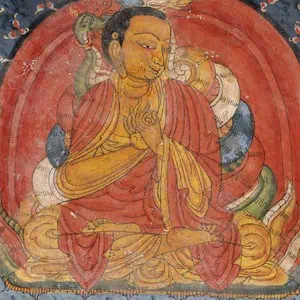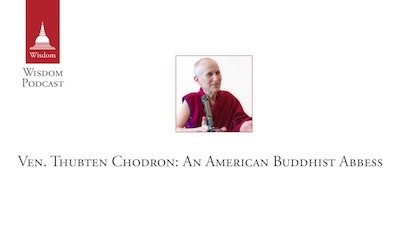Quiz questions for Precious Garland: Intro to verse 24

Quiz questions covering the introduction of Nagarjuna’s Precious Garland of Advice for a King through verse 24.
- Why is Nagarjuna specifically teaching a king? Do you think that the advice he gives the king would be different from advice he would give you personally?
- Why does the author at the beginning of a treatise pay homage to the Three Jewels?
- Describe the excellent abandonment and excellent realization of the Buddha.
- Why do we learn and practice for higher rebirth before practicing to attain the highest good when attaining the highest good is our final goal?
- In what order are higher rebirth and the highest good ascertained? Which is ascertained first: that rebirth as a human or god is a higher rebirth or that liberation and full awareness are the highest good? Which of the two is attained first?
- What are the roles of wisdom and faith in attaining higher rebirth and highest good? Which one is foremost? Which one comes first? Why?
- What are the three types of phenomena and the three types of reliable cognizers that know them?
- How do we generate faith in karma and its effects?
- What does it mean for someone to have sharp faculties or modest faculties? Is the path different for these two types of people?
- Who is a superior vessel for the highest good?
- What qualities does a person with wisdom have?
- What are the ten nonvirtuous paths of action? What are the parts that make an action or karma complete? What does it mean for an action to be complete?
- What are the other three actions to abandon? Describe each.
- What are the three actions to practice? Describe each. Which of these are easier for you and which are more challenging?
- What are the five wrong livelihoods? Do you ever go in the direction of procuring requisites through them?
- Why didn’t the Buddha have his disciples practice asceticism?
- The sixteen practices are summarized in three. What are they? How are the sixteen summarized in them?
- Why do people who have wrong views about karma and its effects fall to the unfortunate realms?
- What are the three (expanded into four) results of karma? Make examples of each of them for the thirteen actions to be abandoned as well as for miserliness, jealousy, anger, and not questioning the wise?
- Which verse summarizes the essence of Nagarjuna’s teaching on higher rebirth?
- What are the causes for being reborn in the four jhanas and four immaterial meditative absorptions?
- How has studying this section influenced your thinking and your Dharma practice?
Venerable Thubten Chodron
Venerable Chodron emphasizes the practical application of Buddha’s teachings in our daily lives and is especially skilled at explaining them in ways easily understood and practiced by Westerners. She is well known for her warm, humorous, and lucid teachings. She was ordained as a Buddhist nun in 1977 by Kyabje Ling Rinpoche in Dharamsala, India, and in 1986 she received bhikshuni (full) ordination in Taiwan. Read her full bio.


